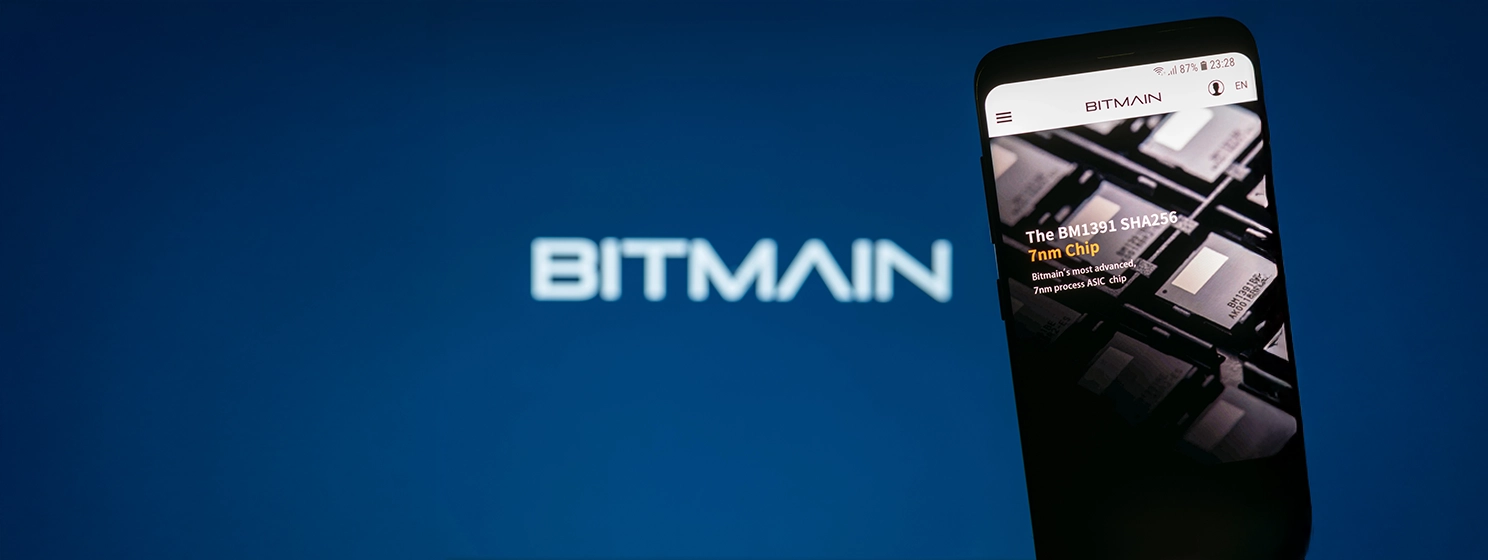|
Getting your Trinity Audio player ready...
|
American miners received some much-anticipated news as Bitmain, the top maker of ASIC hardware for mining Bitcoin, said in July that it plans to open its first United States factory by the end of 2025. This is a big change for the company, which is based in Beijing and has always made its Antminer machines in Southeast Asia.
The current goal is to begin manufacturing either in Texas or Florida as early as the beginning of 2026. Bitmain is already hiring 250 local workers to help speed up deliveries, make repairs easier, and get a stronger hold in the U.S., which consumes 40% of the world’s total hash power. With trade issues and environmental concerns growing, this move could improve the mining hardware landscape.
Machines, like Bitmain’s Antminer series, are the core of the mining industry, but manufacturing and running them pose challenges. Energy costs, which can be up to 80% of operating expenses, and the increasing difficulty of the network mean miners need to upgrade their hardware routinely. Bitmain is responsible for a significant portion of this market—they likely control 70-80% of the BTC mining equipment sold worldwide.
The Antminer S23 Hydro is one of the fastest, using only 9.5 joules of energy per terahash (J/TH). Manufacturing these machines in Southeast Asia has had its challenges. Namely, supply chain issues and U.S. tariffs resulted in increases of 24-36% on machines made in Asia. This cuts into the small profits miners made after the Bitcoin halving in April 2024.
Bitmain’s decision to bring some of its manufacturing to the U.S. indicates they’re trying to correct these issues. By manufacturing Antminers in the U.S., they can avoid import taxes, get products to market faster, and offer quicker repairs to U.S. buyers, who do most of the mining in the world. Texas, with its cheap energy and friendly guidelines for crypto, and Florida, with its growing tech industry, are favorable locations for manufacturing. This move also helps with concerns in the U.S. about Chinese tech companies, including Bitmain’s artificial intelligence (AI) company Sophgo, which was put on a blacklist by the U.S. Commerce Department.
Manufacturing products domestically could address some of these concerns. Irene Gao, Bitmain’s global business head, stated that although labor costs are higher in the U.S., the business benefits of being closer to customers offset this.
Being sustainable is a key part of Bitmain’s plan. Bitcoin mining consumes 187.9 terawatt-hours of energy annually, higher than what some countries use, and has caused concerns about its environmental impact. A 2025 Harvard study found that BTC mining in the U.S. is linked to pollution that affects 1.9 million people, which has increased the call for greener methods.Bitmain has been working on this with machines like the Antminer S23 Hydro, which utilizes liquid cooling to achieve 580 terahashes per second (TH/s) at 9.5 J/TH. This is much better than the industry average of 27 J/TH. The U.S. factory could focus on manufacturing these kinds of energy-saving machines, prioritizing renewable energy and complying with local regulations. This could also appeal to U.S. miners who are facing resistance in places like Fannin County, Georgia, where bans have been put in place due to noise and environmental concerns.
The U.S. factory puts Bitmain in a position to take advantage of a shifting market. With Bitcoin prices going over $120,000 in August 2025 and more money flowing into ETFs than new coins are being mined, efficient hardware is needed. Bitmain offers flexible payment options, such as pledging BTC and offering discounts, which indicates a shift to a market that favors buyers. This can be seen in recent deals with companies like CleanSpark (NASDAQ: CLSK) and Hut 8 (NASDAQ: HUT).
Block, whose Proto ASIC miner will likely challenge Bitmain’s lead with its modular designs. With increasing competition for cheap energy from AI data centers straining resources, Bitmain will need to secure solid energy partnerships as a hedge.
You could look at Bitmain’s move to the U.S. as a risky bet on the future of mining, or you could see it as a giant step forward for the mining economy with the U.S. as a foundational piece on the ASIC chessboard. The factory’s success will depend on Bitmain’s ability to make cutting-edge ASICs, understand complex regulations, and meet the needs of U.S. miners in a tough, competitive market. As the industry changes, Bitmain’s move could set a new standard for Bitcoin mining hardware, strengthening America’s role as a global crypto center.
Watch | Mining Disrupt 2025 Highlights: Profitable trends every miner should know

 02-21-2026
02-21-2026 




